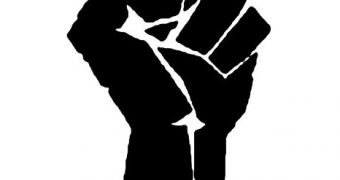If you thought that the copyright-dependent industries are giving up just because a lot of people spoke up against SOPA/PIPA/ACTA, think again. Massive public outcry is a minor inconvenience, a setback, but nothing that can't be overcome. These corporations are, if anything, patient.
In the UK, they've been working on introducing legislation that would harass alleged pirates and make them responsible for proving their innocence.
The Digital Economy Act was supposed to spur economic growth from the internet.
If, by that, it means that it cripples the web and any company foolish enough to want to move forward, to make sure that existing media corporations continue to make as much money as they've been making so far without changing anything, then the name is warranted.
Some more details about the plans have been revealed. The DAE introduced the concept of notifications for pirates. ISPs, contacted by rightholders, have to notify users that have been accused of download infringing content of the fact.
Now, OFCOM, which is overseeing the actual implementation of the law, has provided the Initial Obligations Code, which details how the notifications system is going to work.
Essentially, ISPs will act as postmen and policemen for rightholders. Users accused of pirating content will get three letters, actual physical letters, warning them that they should stop their illegal activities.
Copyright holders won't know who they are targeting, however, if the same person receives three or more letters within 12 months, then they can ask a court to order the ISP to reveal their names.
What's more, the methods used to determine who gets accused of copyright infringement have to be approved and audited by OFCOM. At least there's that.
But it's not all "good," people accused of being pirates can fight back the accusation, but have to pay £20 – about $30, €25 – for the privilege of proving their innocence.
The new documents are "drafts" and up for approval. Even if everything goes smooth, the first letters won't start going out earlier than 2014. Even then, it will be a year before it is decided what, if any, measures are the ISPs supposed to take against the people that get repeatedly accused.

 14 DAY TRIAL //
14 DAY TRIAL //